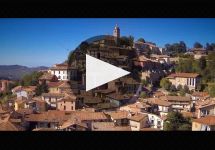Enrico Serafino Barolo Monclivio 2019
-
Wine
Enthusiast -
James
Suckling
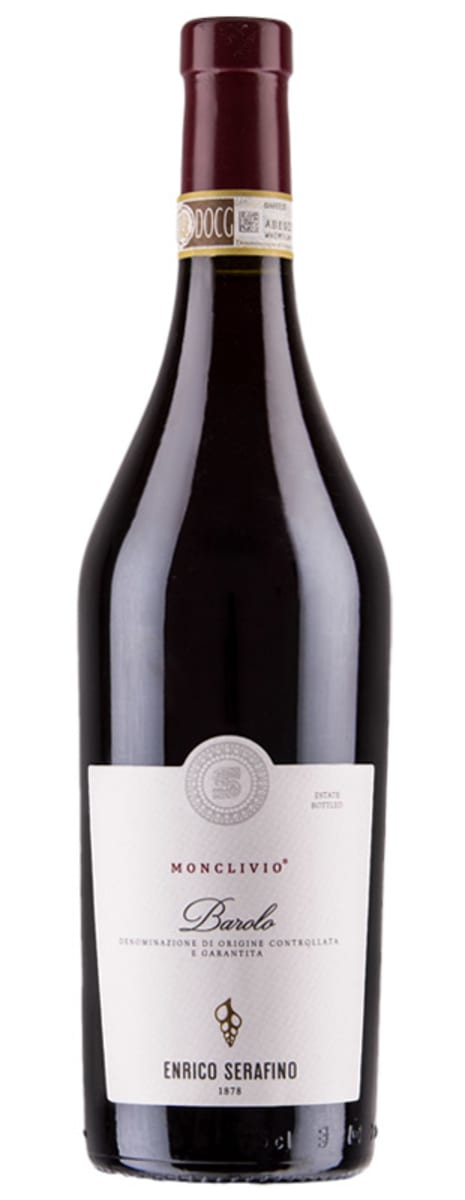


Product Details
Your Rating
Somm Note
Winemaker Notes
Professional Ratings
-
Wine Enthusiast
Cherry, fresh herbs, anise, clove, rosebud and sandalwood aromas open the nose of this pretty Barolo. Finesse-driven with a balance between fruit, earth, floral and structure, the wine hits on all points of a good Barolo. It's drinkable now but will show more subtle earthiness with age. Drink now–2040.
-
James Suckling
Savory, earthy and lightly spicy on the nose with a touch of iron and dried plums. Medium-bodied on the palate with chalky tannins and a savory finish.
Other Vintages
2018-
Wine
Enthusiast -
Robert
Parker -
James
Suckling
-
James
Suckling -
Wine &
Spirits -
Jeb
Dunnuck
-
Wine
Spectator -
Robert
Parker -
James
Suckling
-
James
Suckling -
Tasting
Panel -
Jeb
Dunnuck -
Wine
Spectator


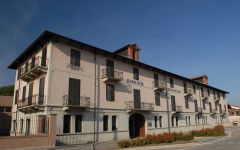
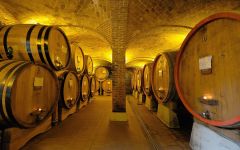

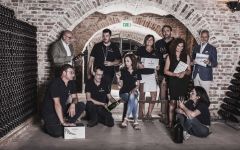
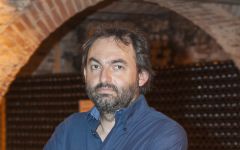
Since 1878, Enrico Serafino has been a family winery crafting artisan wines that show their commitment from generation to generation. This careful dedication to quality comes from the vineyards spread throughout the UNESCO World Heritage site, in the Langhe, Roero and Monferrato in the Piedmont region. Their sustainable approach and meticulous execution allow them to craft a whole set of wines true to the terroir.
Located in Canale, the winery produces a wide array of traditional Piemontese wines, both from the area around the winery in Roero, and also from Barolo and Gavi. Less typically however, Serafino produces Metodo Classico (fermented in the bottle) sparkling wines, from Pinot Noir and Chardonnay grapes. Serafino was on the forefront in the mid-1900s, of the development of what would eventually become the Alta Langa. Today the winery produces three Alta Langa DOCG wines, with their ZERO Alta Langa Metodo Classico being awarded the Best Italian Sparkling Wine of the Year by the prestigious Gambero Rosso Guide in 2014.
The winery also owns 25 acres of Barolo vineyards in the renowned areas of Serralunga, Monforte d'Alba, and Castiglione Falletto where they produce Barolo Monclivio, Barolo Seralunga, and a Nebbiolo Langhe from the “forgotten” Picotener grape.
Today, after more than 140 harvests, Enrico Serafino is still family-owned maintaining the original artisanal soul, respect for future generations and passion for details that have distinguished the winery since the beginning.

Responsible for some of the most elegant and age-worthy wines in the world, Nebbiolo, named for the ubiquitous autumnal fog (called nebbia in Italian), is the star variety of northern Italy’s Piedmont region. Grown throughout the area, as well as in the neighboring Valle d’Aosta and Valtellina, it reaches its highest potential in the Piedmontese villages of Barolo, Barbaresco and Roero. Outside of Italy, growers are still very much in the experimentation stage but some success has been achieved in parts of California. Somm Secret—If you’re new to Nebbiolo, start with a charming, wallet-friendly, early-drinking Langhe Nebbiolo or Nebbiolo d'Alba.

The center of the production of the world’s most exclusive and age-worthy red wines made from Nebbiolo, the Barolo wine region includes five core townships: La Morra, Monforte d’Alba, Serralunga d’Alba, Castiglione Falletto and the Barolo village itself, as well as a few outlying villages. The landscape of Barolo, characterized by prominent and castle-topped hills, is full of history and romance centered on the Nebbiolo grape. Its wines, with the signature “tar and roses” aromas, have a deceptively light garnet color but full presence on the palate and plenty of tannins and acidity. In a well-made Barolo wine, one can expect to find complexity and good evolution with notes of, for example, strawberry, cherry, plum, leather, truffle, anise, fresh and dried herbs, tobacco and violets.
There are two predominant soil types here, which distinguish Barolo from the lesser surrounding areas. Compact and fertile Tortonian sandy marls define the vineyards farthest west and at higher elevations. Typically the Barolo wines coming from this side, from La Morra and Barolo, can be approachable relatively early on in their evolution and represent the “feminine” side of Barolo, often closer in style to Barbaresco with elegant perfume and fresh fruit.
On the eastern side of the Barolo wine region, Helvetian soils of compressed sandstone and chalks are less fertile, producing wines with intense body, power and structured tannins. This more “masculine” style comes from Monforte d’Alba and Serralunga d’Alba. The township of Castiglione Falletto covers a spine with both soil types.
The best Barolo wines need 10-15 years before they are ready to drink, and can further age for several decades.
